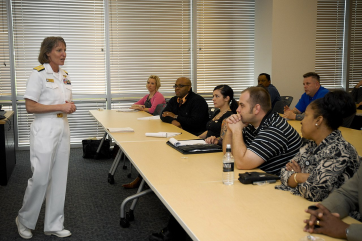Employers Express Concerns Over Gen Z Workers' Preparedness; Colleges Offer Solutions
By Joy LiwanagIn a rapidly evolving job market, concerns about the readiness of Gen Z workers have gained prominence. Employers are voicing apprehensions regarding the proficiency of recent graduates, particularly in critical workplace skills such as oral communication and empathy.
The sentiment is reflected in a 2023 survey, where a substantial 38% of managers and executives admitted to actively avoiding hiring recent graduates, showing a preference for older, more experienced workers. Additionally, a notable 58% of respondents expressed the view that recent graduates lack the necessary preparedness for the challenges of the workforce.
Addressing Skill Gaps in Higher Education
Higher education institutions are actively responding to the concerns raised by employers by implementing strategies to address skill gaps among graduates. One notable approach involves the integration of microcredential courses into academic curricula. These courses focus on developing core competencies like critical thinking, resilience, and oral communication, which are often identified as lacking in some recent graduates. These microcredential courses, typically available online, aim to equip students with the essential soft skills that employers find valuable in the workplace.
READ ALSO: Rethinking Education and Employment in Post-Pandemic US: What Employers Need from Students
Borough of Manhattan Community College provides an illustrative example of this approach. The college offers microcredential courses tailored to specific career pathways, such as emergency medical services. By concentrating on competencies like critical thinking and empathy, colleges aim to prepare students for success in handling real-world scenarios and responding effectively to diverse challenges. The goal is to create a more seamless transition from the educational environment to the workplace.
The Role of Employers and Equity Considerations
While higher education institutions play a pivotal role in developing students' professional skills, the responsibility for bridging the gap also lies with employers. Economist Nicole Smith emphasizes the importance of understanding the challenges faced by young workers, particularly acknowledging their limited exposure to workplace norms due to their relatively short tenure in the job market. Smith argues that expecting young graduates to be 100% efficient on the job might be unrealistic, given their newness to the professional landscape.
Furthermore, Smith sheds light on the need for employers to recognize and embrace the diversity of the incoming workforce. This includes understanding and accommodating differences in background, culture, and experiences. To create inclusive workplace cultures, employers should offer training programs tailored to the needs of diverse employees, fostering an environment where all workers feel valued and supported, regardless of their background or prior experience.
As the discourse surrounding the preparedness of Gen Z workers continues, both higher education institutions and employers play crucial roles in addressing the identified skill gaps. The integration of microcredential courses and the acknowledgment of the unique challenges faced by young workers mark positive steps toward a more effective transition from education to employment. By fostering collaboration between academia and industry, stakeholders can collectively contribute to the development of a workforce equipped with the essential skills demanded by the modern job market.
RELATED ARTICLE: Is College Diploma Still Necessary? Some US Companies Will No Longer Require a Degree for Employment








